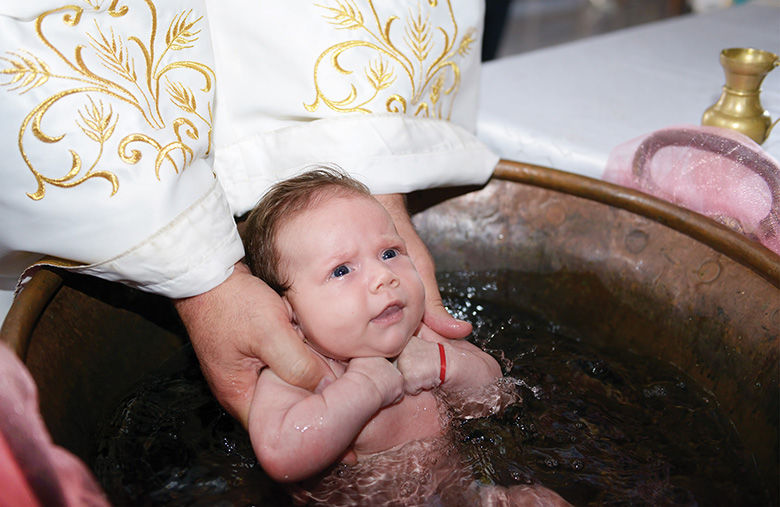When I first held my daughter, I was overwhelmed with the awe and gratitude common to new mothers. Who was this tiny person that was given to me to love? Where did she come from and what will she become? Will her eyes stay blue? Will she be a reader, an athlete, a kind friend?
This profound sense of wonder which we experience at the birth of a child paradoxically brings us back to our own childhood, when our experience of the world is illuminated by the miracle of existence. We see this amazement as the child grows: her whole body enlivens at backyard rabbits, the long, soft branches of a willow tree and a visit from her grandfather.
The child’s way of relating to the whole world differs greatly from the adult’s; it is imbued with wonder and awe, aware of the whole world as a gift.
The admiration and astonishment that is natural to a child fosters her relationship with the Giver, God himself. Sofia Cavaletti, the great children’s catechist, put it this way:
“Education to wonder is correlative with an education that helps us to go always more deeply into reality. If we skim over things we will never be surprised by them. Wonder is not an emotion of superficial people; it strikes root only in the person whose mind is able to settle and rest in things, in the person who is capable of stopping and looking. It is only through a continued and profound observation of reality that we become conscious of its many aspects, of the secrets and mysteries it contains.”
As Cavaletti says, wonder requires a profound attention to reality, manifest in the world around us: through this attention, we enter into the mystery that it contains. The child, to whom everything is new, concentrates deeply on small wonders, from acorns and pinecones to shadows and light.
As adults, we often become lost in our thoughts, rather than observing what is in front of us. We gloss over what we see with the idea that we already know what it is. But what a mystery the acorn contains!
The more the adult is attentive to the child, the more his own perception of the world is imbued with wonder and awe; the adult who welcomes the child, as Jesus asks of us in Matthew 18, develops an enriched view of reality that more fully acknowledges the mystery present amidst the ordinary.
Jesus himself makes this dual meaning clear in the same passage when he says, “Amen, I say to you, unless you turn and become like children, you will not enter the kingdom of heaven. Whoever humbles himself like this child is the greatest in the kingdom of heaven. And whoever receives one child such as this in my name receives me.”
By accepting the children that God gives us, in whatever form that may be, we become more childlike in turn. We grow in humble awe at the gift of existence itself.
Anamaria Scaperlanda Biddick writes from Oklahoma City.

